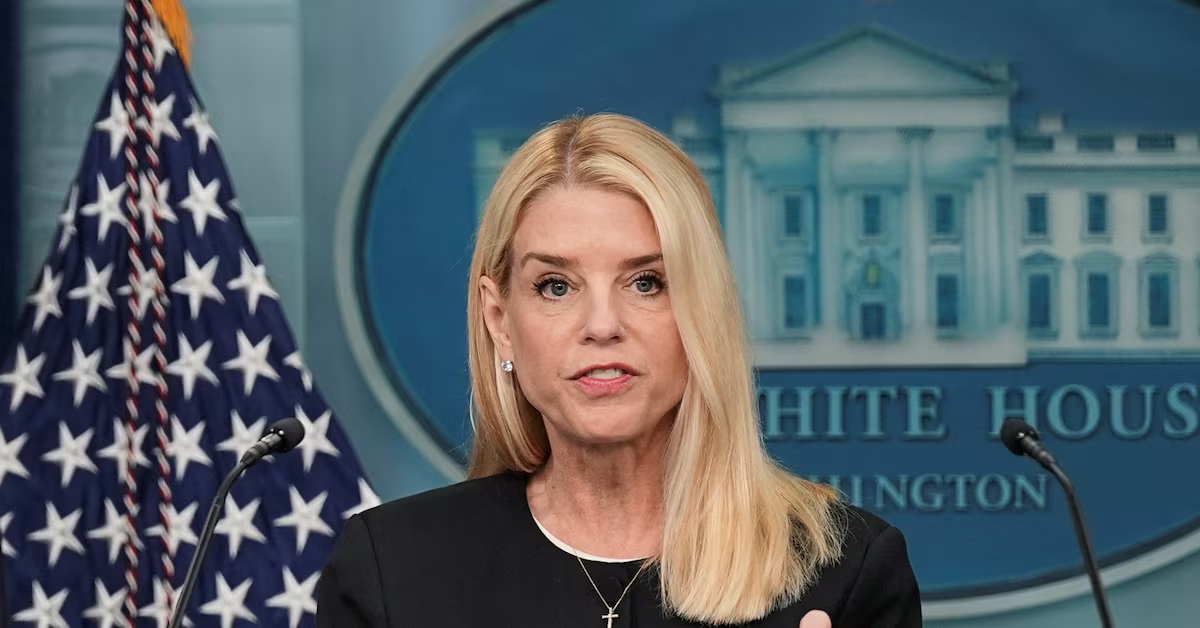The recent dismissal of federal charges against Dr. Michael Kirk Moore, a Utah plastic surgeon accused of endangering public health during the COVID-19 pandemic, raises urgent questions about accountability in our healthcare system. Attorney General Pam Bondi"s choice to eliminate serious allegations against a medical professional who reportedly provided saline shots instead of vaccines and sold fraudulent vaccination cards sends a troubling message about the government"s commitment to public health and justice.
Government Turns a Blind Eye to Vaccine Fraud
On June 27, 2025, Attorney General Pam Bondi announced the dismissal of charges against Dr. Moore, who faced significant jail time for conspiracy to defraud the government. This decision was justified by Bondi as being "in the interests of justice." However, the implications of this ruling extend far beyond a single case. As reported by the Associated Press, the charges against Moore involved the destruction of over $28,000 worth of COVID-19 vaccines and providing fraudulent vaccination cards for over 1,900 doses.
Health Risks Ignored for Political Gain
Dr. Moore"s actions represent not only a personal betrayal of the trust placed in healthcare providers but also a broader, systemic failure. Health Secretary Robert Kennedy Jr., a prominent anti-vaccine activist, openly supported Moore, highlighting the intersection of political ideology and public health. This is consistent with findings from recent studies indicating that political beliefs significantly influence vaccine acceptance and health behaviors.
The decision to dismiss charges against Moore may be interpreted as an endorsement of his actions, which undermines the efforts of thousands of healthcare professionals who worked diligently to combat the pandemic. The message sent by the federal government suggests that defying public health protocols can be rewarded, and this sets a dangerous precedent for future public health crises.
Vaccine Hesitancy Exploited by Political Figures
The fallout from this case is compounded by the growing trend of vaccine hesitancy, which has become increasingly politicized. According to research, political ideology is a significant factor in vaccine uptake, with anti-vaccine sentiments gaining traction among certain groups. This trend puts communities at risk, particularly marginalized populations who are disproportionately affected by misinformation and lack of access to healthcare.
The rise of misinformation surrounding vaccines exacerbates the challenges faced by public health officials. By dismissing serious allegations against a doctor who engaged in deceptive practices, the government is not only failing to hold individuals accountable but also validating the anti-vaccine narrative that has taken root in parts of American society.
Implications for Public Health Policies
This scandal comes at a time when public trust in healthcare systems is already fragile. The dismissal of charges against Dr. Moore further erodes confidence in the federal government"s ability to manage public health effectively. The implications for public health policy are staggering, as trust in vaccines and healthcare providers is critical for achieving herd immunity and safeguarding communities.
Moreover, the notion that healthcare professionals can sidestep legal consequences for unethical behavior threatens to undermine the very foundation of medical ethics. As the Centers for Disease Control and Prevention (CDC) has emphasized, vaccines are essential in controlling infectious diseases, and any actions that compromise their distribution and administration jeopardize public safety.

Trump"s attorney general drops fraud case tied to COVID ...
Calls for Accountability Intensify
The decision to drop charges against Dr. Moore has sparked outrage among public health advocates and citizens who recognize the need for accountability in healthcare. With prominent figures like Rep. Marjorie Taylor Greene drawing attention to the case, the politicization of healthcare continues to threaten the integrity of our medical system.
Advocates argue that the government must take a firm stance against fraudulent practices in healthcare, emphasizing the importance of maintaining public trust as a critical component of effective health policy. The widespread acceptance of fraudulent vaccination cards and misinformation not only puts individuals at risk but also hinders broader efforts to combat public health crises.
Next Steps for Public Health Advocacy
In light of these events, public health advocates are calling for a reevaluation of legal protections for healthcare professionals who engage in unethical practices. As the landscape of healthcare continues to evolve, it is crucial to prioritize accountability and transparency to ensure the safety of vulnerable populations.
The government must also invest in educational campaigns to combat vaccine hesitancy and misinformation, particularly among communities most affected by these issues. Addressing these challenges is vital for fostering a more equitable healthcare system that prioritizes the well-being of all citizens, regardless of their political beliefs.
As this case unfolds, the question remains: will the government prioritize justice and public health, or will it continue to allow political ideologies to undermine the integrity of our healthcare system?



![[Video] Gunfire between Iraqi security forces and Sadr militias in Baghdad](/_next/image?url=%2Fapi%2Fimage%2Fthumbnails%2Fthumbnail-1768343508874-4redb-thumbnail.jpg&w=3840&q=75)
